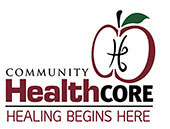Cherokee County Texas Addiction Hotline
Cherokee County Texas Substance Abuse Treatment Hotline
Substance Abuse Statistics Cherokee County Texas
Cherokee County, Texas, has a prevalence of substance abuse that is concerning. According to the National Survey on Drug Use and Health (NSDUH), conducted annually by the Substance Abuse and Mental Health Services Administration (SAMHSA), the state of Texas has a higher rate of substance use than the national average[1]. The prevalence of substance abuse in Cherokee County is reflected in the data provided by the Texas Outpatient Discharge Data Public Use Data File (PUDF), which shows that the county had four drug manufacturers and distributors in 2022[2]. The prevalence of substance abuse in Cherokee County is a cause for concern, as it can have a significant impact on the county’s population.
The most commonly abused substances in Cherokee County include alcohol, marijuana, and prescription drugs[3]. Prescription drug abuse, specifically opioids, is a significant issue in rural Appalachia, which includes Cherokee County[4].
This abuse can lead to negative impacts on the population, including addiction, overdose, and the spread of blood-borne diseases such as HIV and Hepatitis C[5]. The high prevalence of substance abuse in Cherokee County highlights the need for increased education, prevention, and treatment efforts to combat this issue.
The impact of substance abuse on the population of Cherokee County is significant. Substance abuse can lead to a range of negative consequences, including physical and mental health issues, financial strain, and legal problems[6]. Additionally, substance abuse can have a ripple effect on families, communities, and the economy[7]. Increased substance abuse can lead to higher healthcare costs, increased crime rates, and decreased productivity. Addressing the issue of substance abuse in Cherokee County is critical to improving the overall health and well-being of the population and promoting a thriving community.
References
1. National Survey on Drug Use and Health (NSDUH). from www.samhsa.gov
2. Center for Health Statistics Texas County Numbers and Public …. from www.dshs.texas.gov
3. Cherokee County, TX. from datausa.io/profile/geo/cherokee-county-tx
4. Substance Use in Rural Central Appalachia: Current Status …. from www.ncbi.nlm.nih.gov/pmc/articles/PMC5648074/
5. Provisional County-Level Drug Overdose Death Counts. from www.cdc.gov/nchs/nvss/vsrr/prov-county-drug-overdose.htm
6. NCDAS: Substance Abuse and Addiction Statistics [2023]. from drugabusestatistics.org/
7. Results from the 2019 National Survey on Drug Use and …. from www.samhsa.gov

Cherokee County Texas Drug & Alcohol Recovery Resources
ACCESS Cherokee County Texas Government Substance Abuse Treatment
ACCESS Cherokee County Texas Government Substance Abuse Treatment. The services for the Substance Abuse Program at ACCESS include screenings, treatment plans, individual and group counseling. We are here to assist individuals recovering from alcohol and other drug addictions. Referrals are made from Probation, CPS, Parole, ACCESS, medical facilities, treatment facilities and from the community. The Substance Abuse Program includes group counseling that meets each week and individualized counseling that is completed every other week. A client can expect to stay in this supportive outpatient treatment program approximately 3 month

Cherokee County Texas Addiction Recovery Support Services
Cherokee County Texas Addiction Recovery Support Services. The East Texas Council on Alcoholism and Drug Abuse is a 501(c)3 nonprofit organization that provides education, youth prevention programs, information resources, and services to prevent alcohol and drug use/misuse. Our Mission is to provide recovery support services and reduce substance use through education and intervention. We also help young adults successfully transition into adulthood by providing services to address essential needs.

Cherokee County Texas Alcoholics Anonymous
Cherokee County Texas Alcoholics Anonymous. Cherokee County, located in East Texas, has an Alcoholics Anonymous (AA) community committed to assisting individuals in overcoming alcohol addiction and leading sober lives. AA meetings in Cherokee County offer a supportive space where members can openly share their struggles, successes, and experiences in navigating recovery. Through the implementation of the 12-step program and mutual encouragement, Cherokee County AA provides vital support and guidance to those seeking to break free from alcohol dependency, fostering a sense of camaraderie and empowerment within the community.

Cherokee County Texas Narcotics Anonymous Lone Star Region
Cherokee County Texas Narcotics Anonymous Lone Star Region offers a beacon of hope and support for individuals battling addiction in the region. As part of the wider Narcotics Anonymous network, this chapter provides a safe and non-judgmental environment where individuals can find solace, guidance, and camaraderie on their journey to recovery. Through regular meetings, fellowship, and shared experiences, members of the Lone Star Region of Narcotics Anonymous in Cherokee County TX foster a sense of belonging and empowerment, empowering one another to embrace a life free from substance abuse. Their commitment to the principles of honesty, openness, and community serves as a cornerstone in helping individuals rebuild their lives and reclaim their dignity.

Healthcore Cherokee County Texas Substance Use Treatment Center
Healthcore Cherokee County Texas Substance Use Treatment Center. The Beginning Treatment Center is an outpatient substance use disorder treatment facility for residents of Cherokee County TX that provides counseling, screening, assessment, and a treatment plan to adults who suffer from a chemical dependency. The initial criteria for admission include being a Texas resident and having at least a mild diagnosis for substance use disorder according to the DSM-V criteria. The program provides educational life skills and addiction recovery skills to prevent relapse, utilizing the evidence-based practice program, Living in Balance.
.


